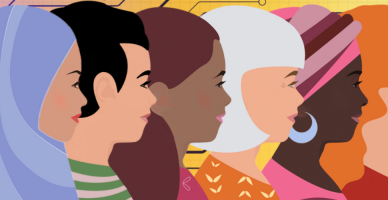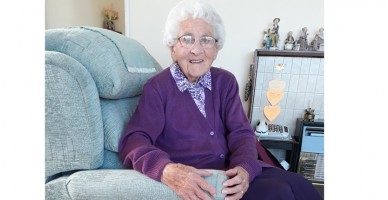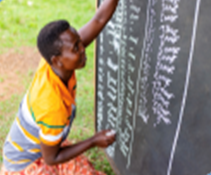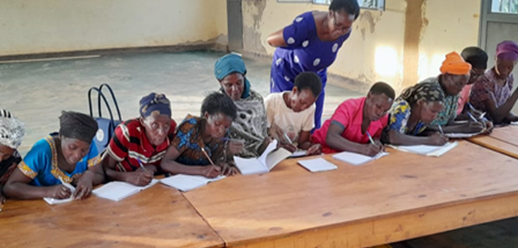We use it on a day to day basis without even noticing, from reading a telephone number, shopping for everyday essentials or even following recipes. Imagine not being able to do any of those tasks. Often we take numeracy for granted and don’t even realise.
On National Numeracy Day, we wanted to explore the way Mothers’ Union is working at a grassroots level to equip communities with the skills of literacy and numeracy to improve their way of life, to reduce poverty and empower disadvantaged groups.
In Rwanda, when Deidre’s* husband lost his job during Covid-19, she took on the responsibility of taking care of her whole family. With the help of regular loans from her saving group ‘I increased my working capital and 65,000 Rwf (Rwandan franc) were used for buying a goat. Now my business expanded and I can sell more.’ Her numeracy skills of managing her money allowed her to build her business and look after her family.
Mothers’ Union also has programmes in Burundi working with disadvantaged communities and people living in extreme poverty. Over a 20 year period, the programme in Burundi trained nearly 1,300 facilitators to work locally within the communities and directly benefitted over 165,000 participants. 87% of the participants are now accredited as both literate and numerate. They can now access loans and save money due to the numeracy skills acquired from these programmes. The course promoted financial stability and expanded beyond the classrooms across the community.
‘Through trainings I acquired skills to run businesses.’ and subsequently one participant commented on being able to buy food and feed their growing children.
Not only does numeracy help people in Burundi and Rwanda build their own means of income, this knowledge grows their self-esteem and confidence. Consequentially, they feel able to voice their opinions and fight for equality and empowerment in a more wider context. Due to financial empowerment, it has been reported that there is a reduction in domestic violence that grows out of economic stress in households.
A Rwandan member of a savings group said, ‘I was feeling lonely and hopeless. Our group members are like my second family members.’ It brings a sense of community and togetherness; a safe space for discussion on a variety of topics. Not only are these groups providing essential life skills to the participants, but building up the community spirit and spreading empowerment through numeracy.
I thank God for my saving group.





